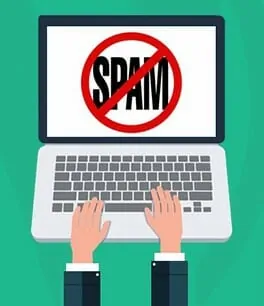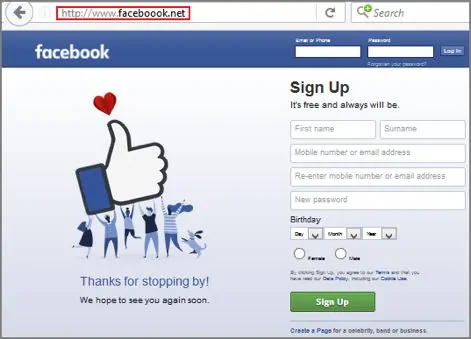For years, it was believed that small businesses are safe from sophisticated cyber attacks. But, the recent activities of the hackers speak a different story. According to the security company Symantec, the cyberattacks on small businesses have increased by 300 percent during 2011-12.
[bctt tweet=”Here are nine possible reasons why #hackers are targeting the small #sites these days.”]
Table of Contents
Insert Malicious Content on Your Page
The hackers usually hack small and insignificant websites to inject their malicious content or code onto the front end of your WordPress site. When they are successful in doing so, your visitors may get redirected to a spam site the moment they click on any malicious link.
Not just that, if the hackers hyperlink your website content to a spam site, they can drive the total traffic of your website to that particular site. They can also achieve the same results through comment spam, actual content submission, as well as email hijacking.
Fetch the Visitor’s Data
Cyber-attacks do not just concern the website owners, but it also affects the interest of the website visitors. A lot of hackers attack small (yet legitimate) websites to get their user data (user id, password, card details, etc.). They can use it for a variety of purposes, mostly for illegal activities. If your company serves students with essay writing, hackers can use the information about visiting students to blackmail them.
As you may realize, any security breach on the website is terrible for the business. Mostly because cyber-attacks can be held just to get the personal information of the visitors, and since the user data is sensitive information, unethical access to it can put you in a questionable position. You may need to compensate for privacy infringement as well.
Spread Malware
Spreading viruses and malware to the users’ computers and devices is another reason why the attackers target small websites. Since the small sites have fewer layers of security, it gives the hackers an easy target to install website malware that infects the devices of the users who visit the website.
The hackers can accomplish this by writing malicious codes into the backend of the WordPress site or by uploading downloadable files on the front end. If you are a victim of such an attack, it can ruin your business to a great extent. Search engines usually flag infected websites as malicious.
It will take a significant amount of time to improve the SEO ranking after such an attack. Your website may get enlisted under several other blacklists, as well. But the devastating outcome is going to be losing credibility among the visitors.
Stealing the Private Information of the Business
Hackers don’t always attack a website to fetch the user data. At times they intend to get crucial information about the business from its website. If you own a small business, and you keep all the vital details on the corresponding site, the chances are hackers may fetch that data and ask for ransom.
The attack of ransomware on WordPress websites is nothing new. Last year, WannaCry ransomware made several headlines in the newspaper. Even though the frequency of such attacks has reduced recently, experts believe that such attacks may increase in the near future. It is wiser for the small businesses not to sync all the crucial data on their corresponding websites.
Use the Website’s Web Server to Host Phishing Pages
Phishing pages or websites are those landing pages which the hackers create within the attacked site to collect information from the users. Since it is difficult for the average users to distinguish between a real webpage and a phishing page, they end up sharing their personal information on the phishing page rather willingly.
They may imitate the appearance of a popular website like Facebook or Gmail, which has a vast number of users. So when a visitor encounters such a phishing website, they assume it to be the real Facebook/Gmail login page. As the user tries to log in to that page, the hackers steal that login credentials to use it for any nefarious purpose.
Steal the Website’s Server Bandwidth
Bandwidth is a bunch of wires or fiber that connects a server to a single network. Internet service providers (ISPs) often put a limitation on bandwidth usage since loading it with too much data transmission can slow down the whole system. For this reason, hackers often hack a website and steal their bandwidth to host their activities.
The activities may also include cryptocurrency mining and brute force attacks. If a group of hackers wants, they can use web server hardware to mine the cryptocurrencies like Bitcoin and Monero efficiently. However, a brute force attack is using the hacked website to attack other WordPress websites.
Overload Your Web Server
There is a term called the distributed denial of service (DDoS) attack, which involves a synchronized attack from a botnet to overwhelm a target website with fake traffic. Hackers usually practice this form of hacking to take a website offline. There can be several reasons behind it:
- To win a close contest with a rival website
- To demand a ransom
- Any personal motive
- As collateral damage of a broader attack
Get Their Words Out in the Open
Sometimes the hackers take over a small website to get their message out in the open. By attacking your site, they get the opportunity to reach a significant amount of users. Usually, the hackers do it to gain some credibility in the hacker community.
A term often used for this is “street cred” as in “street credibility” that makes them look cool in the eyes of their peers, discovering something nobody else knows.
This can be a part of a political movement of a group. This sort of campaign can make a significant impact on the audience. Such activities have often been used by criminals to show their power to the world. Last year, one such campaign took an incredible speed. Twenty-four hours later, it was discovered 19 separate attack campaigns affected the WordPress sites.
Host Genuine Pages on the Web Server
This is less likely to happen, but hackers do develop legitimate pages on high ranking websites to boost their SEO. This sort of page usually talks about brands that the hackers want to promote. They also include backlinks to the original website they are promoting.
The instances of such activity are very less in the market, but it cannot be ignored as well. The rival company may hire a group of hackers to put a piece of content that slams your brand on your website. Audiences are not going to understand hackers do it. They are more likely to believe it to be a part of the advertising gimmick.
Conclusion
No matter how small your audience base is or how much do you spend on hosting plans, if you are running an excellent platform on the internet, it can become a rich target for hackers. However, there are several ways to prevent that from happening. And if you want, you can add a few layers of security to your website as well.






